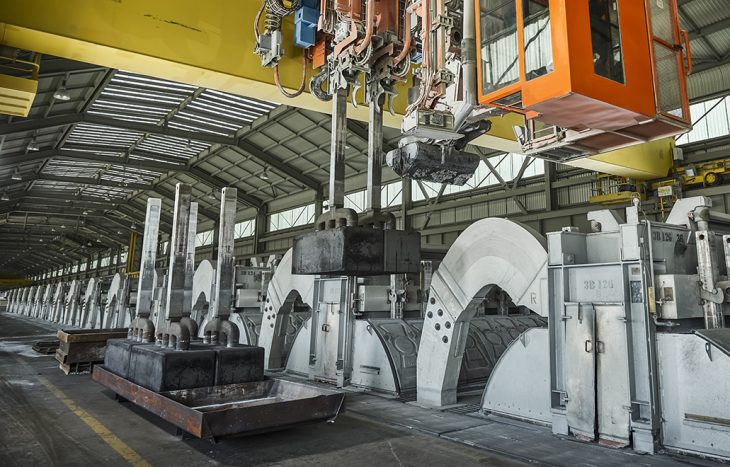Emirates Global Aluminum (EGA) in the United Arab Emirates (UAE) will supply almost all of the carbon dust, produced as a by-product of aluminium smelting, for use as an alternative fuel by the UAE cement industry. Carbon dust is generated during the anode production process. The high carbon content in the dust makes it suitable for use as an alternative fuel. Over the next two years, EGA will increase its supply of carbon dust to the UAE cement industry to some 78,000 tonnes.
“Creating a circular economy with one industry’s waste used as another industry’s feedstock makes environmental and economic sense, and we are glad to be working with the cement industry to pioneer this approach in the UAE,” said Salman Dawood Abdulla, executive vice president, Environment, Health, Safety, Sustainability and Business Transformation at EGA. “We will now re-use almost all the carbon dust we generate at EGA, improving the environmental performance of both aluminium smelting and cement manufacturing.”
The move extends the company’s cooperation with UAE cement companies to re-use by-products of aluminium smelting, in a step forward for the development of a circular economy. EGA already supplies its spent pot lining — another by-products — to UAE cement firms and has trialled the re-use of carbon dust with the industry.
EGA will supply the cement industry with both freshly-produced carbon dust and material produced in earlier years that the company had stockpiled while working to find a viable large-scale industrial use. Freshly-produced carbon dust will be supplied directly to the cement industry. For stockpiled carbon dust, EGA has signed a contract for processing and re-use by Heavy Machinery Viqa, which specializes in recovering and recycling by-products from heavy industries in the UAE.
The use of EGA’s carbon dust will reduce UAE cement companies’ requirements for other fuels, such as coal imported from as far as South Africa. The reduction in mining and long-distance transport of coal is expected to save approximately 36,000 tonnes of CO2 emissions over the next two years, the equivalent of removing 7,800 cars from the roads.

